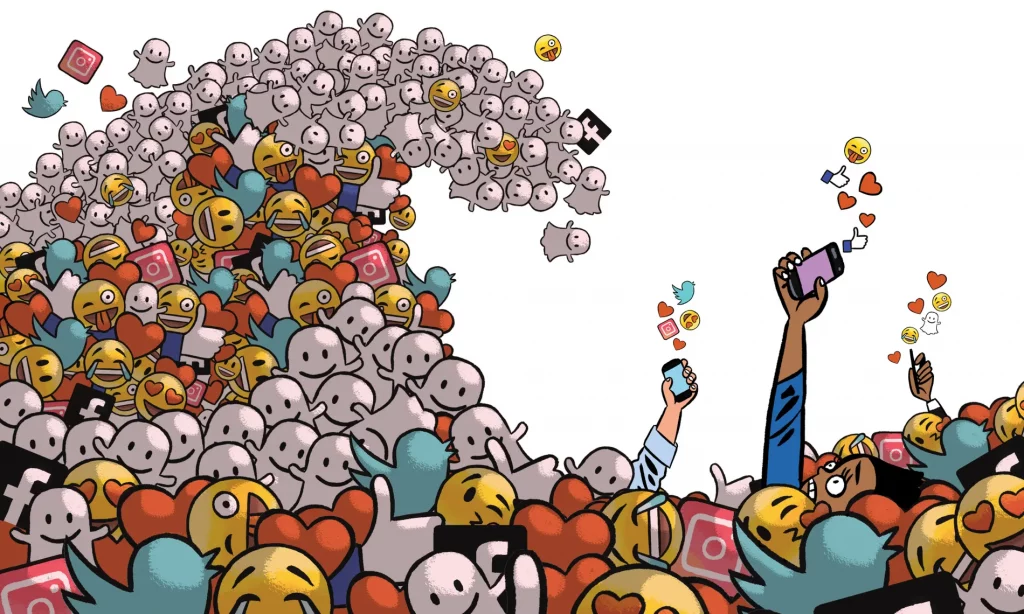Mark Zuckerberg isn’t a regular Facebook user. According to Bloomberg, the 33-year-old CEO has a team of 12 moderators whose sole responsibility is to remove inappropriate comments and spam from his page. His “handful” of staff members write his posts and speeches, and his legion of professional photographers capture flawlessly posed shots of him with veterans in Kentucky, small business owners in Missouri, and cheesesteak vendors in Philadelphia.
Since Zuckerberg’s Facebook timeline is private and inaccessible to the general public, we can only speculate as to whether or not he has ever gotten into a heated debate over an anti-immigration meme posted by a racist relative. It’s not just Mark Zuckerberg, either. There is no “normal” Facebook presence maintained by any of the company’s top executives. Their account is closed to new friends, they rarely make public posts, and they hide information that the site’s settings would have them reveal, like their friend count.
The situation is equivalent on the social networking site Twitter. Only four of the company’s top nine executives post more than one tweet per day. For more than six years, its CFO, Ned Segal, has been a member of the social media platform, but he rarely tweets more than twice a month. Even though Twitter co-founder Jack Dorsey is a prolific tweeter, he has only sent about 23,000 tweets in the years since the site’s inception, far fewer than the average user. Dorsey avoids engaging in debates or arguments with random users and rarely responds to them. In other words, he doesn’t tweet during major sporting events or television shows. In fact, he only occasionally posts on Twitter and does not consider himself a regular user.
This trend is prevalent throughout the industry. Despite the mantra “eat your own dog food,” those in power are rarely the most dedicated social media users.
For some reason, I can’t stop using social media. Since I joined Twitter in April 2007, I have sent around 140,000 tweets, or the equivalent of six Jacks. Regularly, I check Instagram, Snapchat, and Reddit. Remember them? I’m on Ello, Peach, and Mastodon. No? Have no fear. I finally got off Facebook three years ago. I had an epiphany about how it was making me feel and act, so I quit cold turkey and deleted my account. I don’t think twice about it, but I can’t seem to pull off the same stunt twice.
It used to annoy me that the people at the top of the social networks seemed to have no clue what their own platforms were for. Users on a regular basis run into issues that executives who don’t use the sites themselves will never understand, such as bugs, abuse, and poor design choices. If they don’t put their networks to regular use, I don’t see how they can improve them for the rest of us.
Another question that has occurred to me is this: what do they know that we don’t?
Also Read: The Best Times To Post On Social Media In 2022
In October of last year, Sean Parker, the founder and president of Facebook, broke the omertà by revealing at a conference in Philadelphia that he was “something of a conscientious objector” to social media.
With Facebook as the pioneer, the developers of these apps asked themselves, “How do we consume as much of your time and conscious attention as possible?” That’s why it’s important that you feel some form of gratification whenever someone interacts with your content, whether it’s a photo, a post, a comment, or anything else. He continued, “And that will get you to contribute more content, and that will get you… more likes and comments.
You’re exploiting a flaw in human psychology, and a hacker like myself would come up with a solution like this—a it’s social-validation feedback loop. All of the innovators and artists, including Mark Zuckerberg, Kevin Systrom of Instagram, and myself, were aware of this fact. And we went ahead and did it anyway.
A month later, former Facebook VP of user growth Chamath Palihapitiya joined Parker as an outspoken critic of the social media platform. Our society is collapsing as a result of the short-term, dopamine-driven feedback loops we’ve created. At a conference in Stanford, California, Palihapitiya argued that a lack of civil discourse had prevented attendees from working together and that widespread misinformation had led to a lack of trust in the institution hosting the event. That’s not about Russian propaganda. Obviously, this affects the entire world. It’s chipping away at the bedrock of social norms and the relationships between people. In this case, the decision is within my control; I just don’t use that garbage. I have the power to restrict my children’s freedom of choice, and they are not permitted to use that garbage.
Also Read: Social Media Trends To Watch In 2022
Facebook was so shaken by Palihapitiya’s comments that it issued a response in which it admitted to past mistakes, which is unusual for a company whose mission is to “connect people” but which is known for its notorious silence when it comes to its own failures. A Facebook spokeswoman said, “When Chamath was at Facebook, we were focused on building new social media experiences and growing Facebook around the world.” “Facebook was a totally different company when we first started out… as we’ve expanded, we’ve come to appreciate the breadth and depth of our responsibilities.” We are committed to excellence and take our responsibilities seriously.


